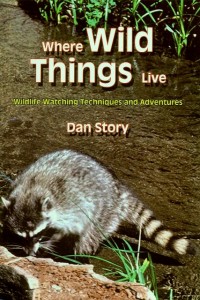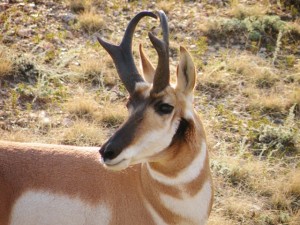Dan Story photograph, South Dakota.
What Ever Happened to the Human Race?
It’s hard to deny that there is something fundamentally wrong with the human race. If Homo sapiens are the result of evolutionary forces, why, with the passing of the millennia, has societies failed to radically improve in the area of ethical behavior? Why has our ability to get along as “social animals” failed to evolve? The fact is people are just as greedy, covetous, selfish, cruel, and warlike today as they have been throughout human history. Indeed, if the past hundred years were the only criterion, it could be argued that Homos sapiens are devolving! The best explanation for the human condition is the biblical one: The family of man possesses what theologians refer to as a “sin nature,” an inherent proclivity to rebel against God and to engage in immoral behavior (Gen. 8:21; Mark 7:20–23; Rom. 7:18–19; Eph. 2:1–3).
In terms of the issue at hand (developing a Bible-based theology of nature), this predisposition to sin also reveals itself in humanity’s worldwide inclination to exploit nature for purely selfish and greedy purposes. This is the underlying reason that the human race, in every period of history, in every culture, and under the banner of every religious belief, has exploited its physical environments and exterminated many of the creatures with which we share the earth (see blog part three). I use the phrase intrinsic exploitive behavior to describe this conduct.
The Human Race Opens the Door to Abusive Environmental Exploitation
The origin of all sin, whether against God, people, or nature, is rooted in what Christian theologians refer to as the “Fall” or the “fall of mankind.” In order to understand the reason that enmity exists between people and nature—and thus the source of mankind’s intrinsic exploitive behavior—this watershed biblical doctrine must be understood. This is the subject of the present and next blog article.
On day six of the creation week, after He had created Adam and Eve in His own image (Gen. 1:27), God looked at all He had made and pronounced it “very good” (1:31). The natural environment in which God placed the first couple was (literally) a paradisaical Garden (2:8). It was unspoiled, undefiled, and uncontaminated. Because there was no death in the Garden (Rom. 5:12), poisonous and harmful plants and animals would have been absent. All creatures, including Adam and Eve, were vegetarians, so there was no predation (Gen. 1:29–30). Likewise, in the absence of death, natural disasters, such as earthquakes, tornadoes, hurricanes, and tsunamis would have been unknown. (If any of these catastrophes or harmful creatures existed, it would not have been a paradise!) Moreover, clothes for warmth and protection were unnecessary for the first couple (2:25). Because God planted the Garden Himself (2:8), food was bountiful and available merely by harvesting it (2:16). Adam and Eve’s only responsibility was to tend and care for the Garden (2:15). They didn’t even have to water it (2:10).
Unfortunately, paradise was lost. Today’s world is the antithesis of original creation in virtually every respect. Natural disasters are frequent. People toil for food and battle pestilence, disease, poisonous plants, and harmful animals. Fire, drought, and disease destroy plants and animals. Animals prey on one another and are crippled and killed by diseases and starvation. As the poet Alfred, Lord Tennyson put it, nature is “red in tooth and claw.”
What transformed the primeval, idyllic Garden into today’s bloodstained battleground where plants, animals, and people struggle against each other in order to survive? The Bible explains this transition in context of the Fall.
When God created Adam and placed him in the Garden of Eden, He told him he was free to eat any food in the Garden except the fruit of one particular tree. This was a test of faith and obedience for Adam. He had a free will to choose to obey or disobey God, and God warned him of the consequences of disobedience. Adam would be punished if he ate the forbidden fruit, and death would enter the world (Gen. 2:16–17; Rom. 15:22). Nevertheless, Adam and Eve disobeyed God and ate the fruit. As a result of this sin, death and decay entered the world (Gen. 3:3, 5, 22; Rom. 5:12), and the first couple was banished from the Garden—a literal and symbolic picture of mankind’s estrangement from God due to the Fall (Gen. 3:23). Henceforth the human race would be infected with a “sin nature,” an inherited tendency to engage in sinful activities contrary to God’s will.
 The effects of the Fall were not limited to humanity. Although nature itself did not fall, it was nevertheless “cursed.” (This is described in Genesis 3:17b–19.) As this passage reveals, Adam and Eve’s fall into sin and resultant curse on nature triggered a major change in the relationship between humans and nature. People began to exploit and plunder nature. This has played out in mankind’s relationship with the land and its wild inhabitants in two distinct ways, which we’ll examine in the next blog article. ©
The effects of the Fall were not limited to humanity. Although nature itself did not fall, it was nevertheless “cursed.” (This is described in Genesis 3:17b–19.) As this passage reveals, Adam and Eve’s fall into sin and resultant curse on nature triggered a major change in the relationship between humans and nature. People began to exploit and plunder nature. This has played out in mankind’s relationship with the land and its wild inhabitants in two distinct ways, which we’ll examine in the next blog article. ©
* The blog articles in this series are adapted from my book Should Christians Be Environmentalists? published by Kregel Publications in 2012. The blog articles do not contain all the chapters, data, quotes, references, or my personal experiences, which the book includes. So, for “the rest of the story” you will need to purchase the book, which is available in both paperback and Kindle. This and the following articles are copyrighted material and may not be reproduced in book or article form. But feel free to send links to these articles to your personal email list, Facebook friends and groups, Twitter followers, or other people who may enjoy them.
